These are the young people battling drought in rural New South Wales
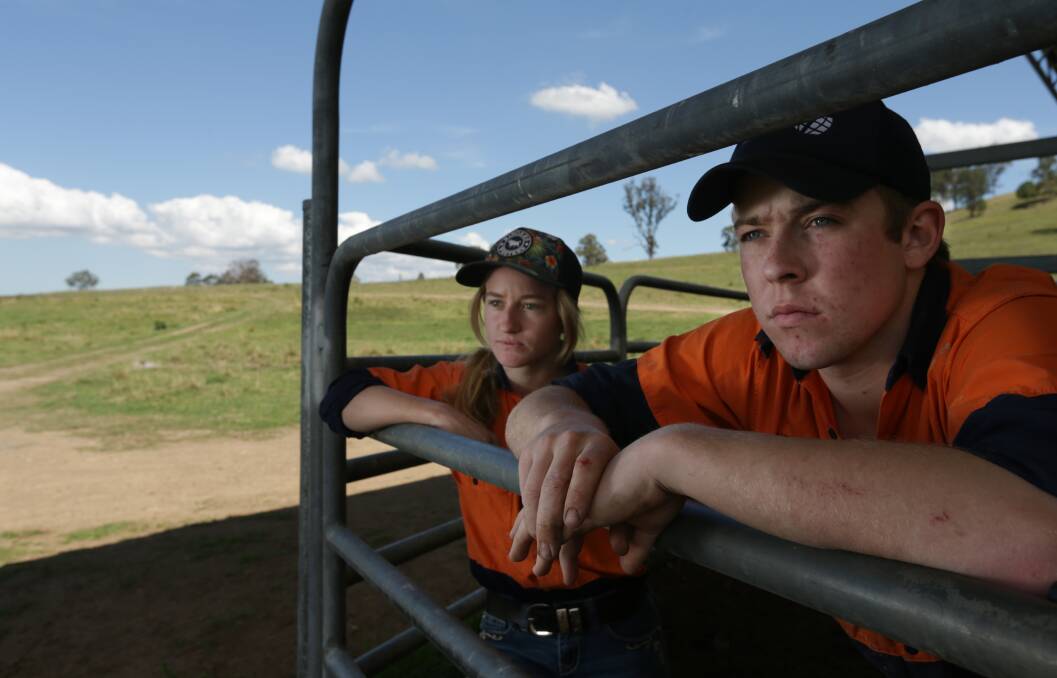
Each weekend Catherine Mitchell, 19, makes the four-hour trip from Tocal, where she lives and studies, to her family's beef cattle farm outside Tamworth. She says three years of drought has reduced its paddocks to dust.
"Last year we had cows walking away from their calves because they couldn't cope feeding them," Mitchell says. "It's heartbreaking. We haven't got a blade of grass anywhere."
Catherine is currently studying for a Certificate III in agriculture at Tocal Agricultural College in the Hunter Valley. She says she would love to study the topic at university, but if the drought does not break this year her family won't be able to afford for her to even complete the program at Tocal.
It's not the first time drought has come in the way of her education.
"Last year, I had no time to study for the HSC. You start feeding cattle at five and you run to the bus at half past seven and you wouldn't get inside until 10," Mitchell says.
"I'm the first in our family to complete Year 12 and, honestly, I thought my marks would be a disappointment. I was surprised."
Water Pressure: Delving into drought and water security in regional NSW
Catherine is one of 100 young people who will contribute to an historic summit hosted by the United Nations' children's charity UNICEF next week at Lake Macquarie's Point Wolstoncroft Sport and Recreation Centre.
Between Wednesday, October 9, and Friday, October 11, participants aged between 14 and 24, from all over NSW, will have the opportunity to voice their ideas on improving the lives of young people and their communities during drought.
Lake Macquarie, boasting the Southern Hemisphere's largest coastal saltwater lake, is one of the few areas in the state that is not in drought. And that's the point, UNICEF Australia's head of policy and advocacy Amy Lamoin says.
"Young people on our steering committee gave really clear advice that the participants would benefit from being out of drought-affected areas. We've heard from the participants themselves they are eager to spend some time close by water," she says.
Lamoin says UNICEF organised the summit because young voices are missing from the national conversation on drought. "We really want to better understand what is happening for young people, and for politicians to take that into account when they make decisions about policy and investment. The summit is an independent and safe connector to leaders in NSW," she says.
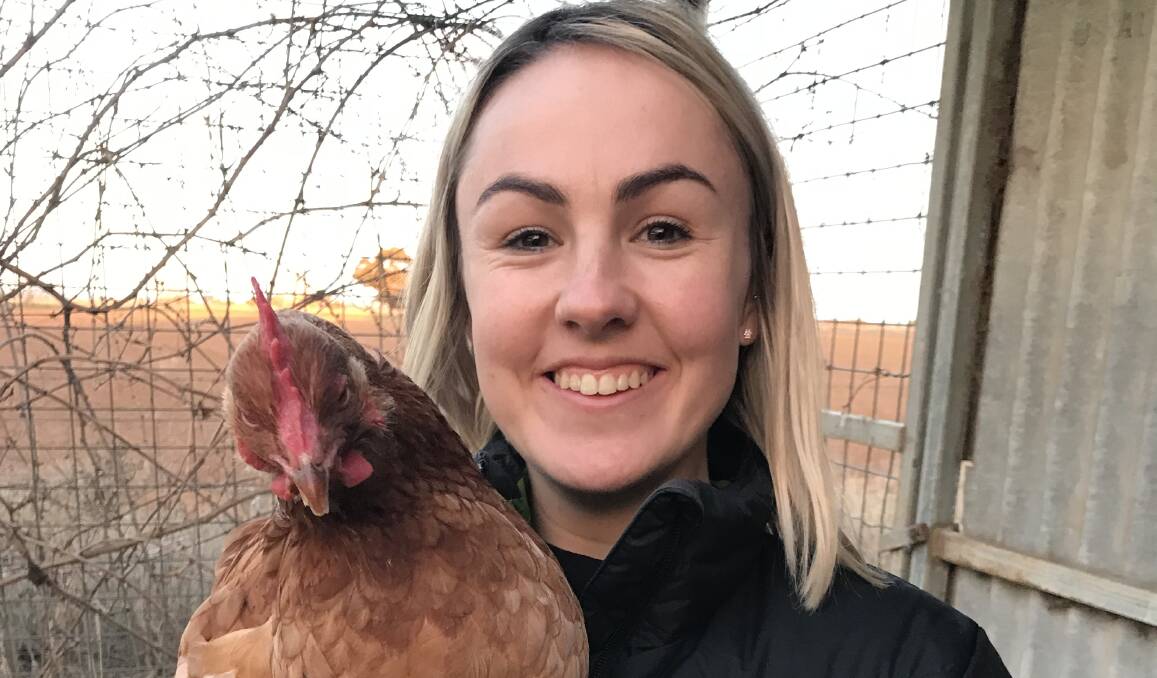
The summit's program will include a panel discussion on what is working well in participants' communities, smaller group conversations about well-being and available supports, leadership and storytelling workshops, as well activities like canoeing. The group will release a list of recommendations to the public.
The UNICEF summit participants and steering committee members have been selected to represent the experiences of young people living at home and away from families' farms, as well as the experiences of youth living in towns that have suffered economically and socially from the extensive drought.
Here are some of their stories in their own words:
Catherine Mitchell
19 years old, from Tintinhull. "Back home we have been in drought for three years. We have destocked almost all of our herd. My mum is working as many hours as she can at a turkey farm to put the money into buying feed for the remaining cattle. Literally her whole paycheque goes into feed stock. My family is struggling to find water. The river has been dry for two-and-half years now. We used to use it for irrigation. If the drought continues I will put more work into the farm. When the rain comes back I'll start studying again. I would like to talk to kids in the same boat and see how they deal with it. I want to ask for more support for young people's education."
Luke Richards
18 years old, from Wollongong, studying at Tocal Agricultural College. I don't live on a property but I grew up around a lot of people, family and really good friends that run properties down Canberra and Queanbeyan way. The drought has changed them so much. You see them at their worst and wonder why aren't people doing more to help them. They are they backbone of this country; if we can't support them, we can't support ourselves. I would like to talk to people and see what their views are, what they are doing and what we can do to assist. Agriculture is something I've always been interested in, I just love the land and way of life. At the end of next year I have to get a job, but no farms are hiring because they can't afford to put people on.
Courtney Ramsay
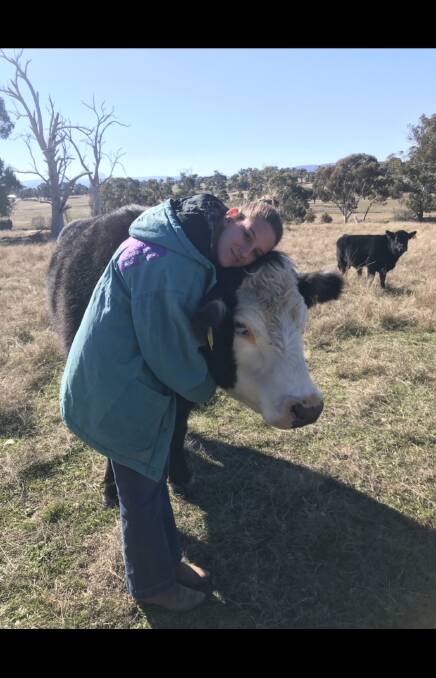
24 years old, from Marrar, near Wagga Wagga. I believe the drought has affected people in my community both financially and emotionally, as they come hand in hand, really. Financially the drought has caused people to close down businesses, reduce livestock numbers, sell water allocations, run crops at a loss and sell long lines of family farms. It causes high emotions and stress on individuals and communities. I hope to contribute to the summit with a basic knowledge and understanding of the effects that the drought has on communities, seeing it first-hand with my fiancé. I have an open mind and am willing to explore the challenges and effects further. I am comfortable having group discussions about sensitive topics such as the drought. I hope to take home and gain a greater understanding of the drought and the future of the drought, the negative impacts and I hope to connect with people who are experiencing the hardship of the drought. After I finish my social work degree I want to work in rural remote areas, so it is likely I will be working with clients with these experiences.
Paris Crouch
18 years old, from Abercrombie, Bathurst. I don't live on the land personally, but I have family who do. My nan and pop are on a property and, because they're so far out of town, they have to buy water to bring in and put in their tanks [for] household use and just to fill up troughs for the sheep and horses. It's very costly. I did work experience, and during that I could see how cattle and the farmers were struggling with less water and less feed. It's a devastating sight for me to see, personally, the effects of this drought. This is predominantly a beef cattle area, so we have a lot of Angus out here, and I just see farmers struggling ... even my teachers who have cattle are trying to scrape money together to try and feed them. I'm looking forward to talking to people that know a lot more than me, and being able to come up with solutions or ideas that could be put into action.
Related reporting: the Northern Daily Leader's complete investigation into drought in the New England
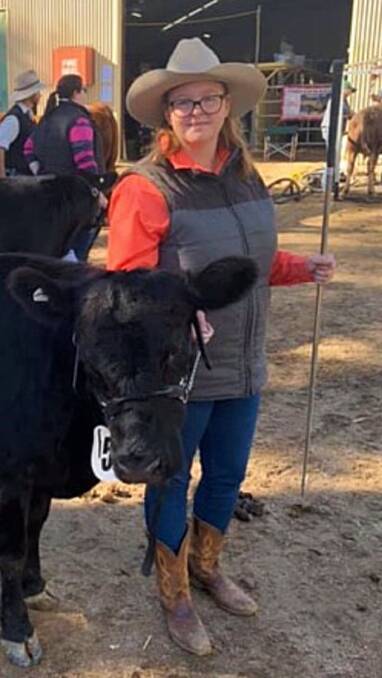
Mikala McLean
18 years old, from Dubbo. We run Merino sheep and Hereford cattle, and we crop wheat, barley, oats and lucerne. The drought affects all parts of our lives: it affects what you can and can't do, it means that we have to go without some things. Some people are far worse than us, but we still struggle. The drought means that we see no green, we see our own animals die, our parents argue about how we can pay for things we need. We barely have any feed left, and we are running out of money. We only have a bit of water left. It takes all our happiness as it's all we can talk about, because we see it everywhere. The community effect is the hardest to see, with several kids always being sad and not being able to see the light at the end. We cope mainly by talking to others. We are all going through the same thing. I would like to find different ways to cope with the drought, and how it may be made easier through community and support. I believe that I could offer insights to the drought and mental health hopefully.
Patrick Blomfield
16 years old, from Caroona. I live on a 980-hectare cattle property. When I think about the drought in NSW, I think about the lack of feed, the massive stock losses, terrible crop yields, the stress and hardships faced, farmers selling off third- and fourth-generation properties because they can't afford to keep them running. I think of charities like Burrumbuttock Hay Runners and Buy A Bale, and the time and effort put in to help drive Australia's farmers and rural communities and keep them on their feet. I think of my family and friends, and how they are coping, and what can be done to help get them through together. I wanted to be involved in the summit because I feel that it is a way to give back to my community. I hope that the summit will teach young people how to best deal with the stress and pressure of drought, as well as let them connect and share stories and ideas.
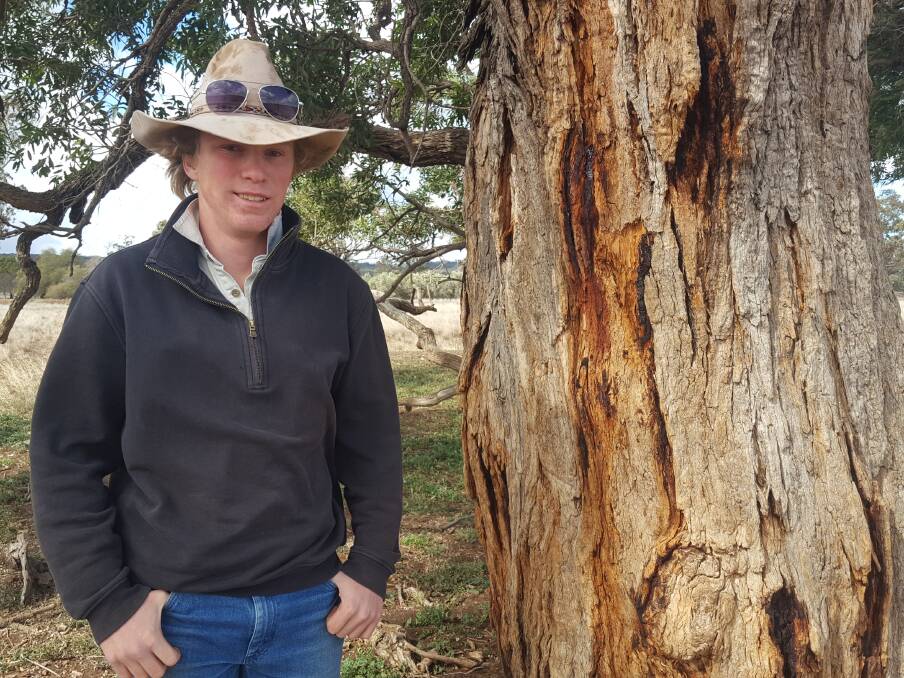
Elly Byriell
17 years old, from Breeza Plains. I'm off a mixed farming property; we have grains, cotton and a few cows. I applied to be part of the summit because I wanted to make a change for other young people and the future. I'm hoping to just see all the youth affected by drought, and that we all come together and share our stories and try and get something put in place. For the youth in general, I think they just want to know that their education is safe - to know that, even if their parents can't pay for it, they're still going to have a future and be educated well. I see in our [boarding] school that people have had to leave because of that; that people have come home to Gunnedah and gone to local school instead because they just can't afford boarding school.
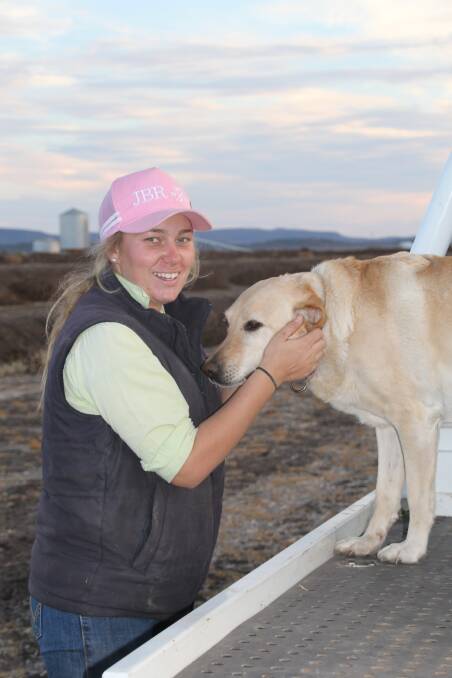
Meg Austin
21 years old, from Canowindra. Australia is the land of harsh droughts and flooding rains. As farmers working the land, I think we need to become more accustomed to the reality that there is no such thing as a "normal year" or "average rainfall". As rural communities, we need to build businesses that can handle the financial impacts of drought or floods, to withstand the hard times and come out the other side. This drought has a firm grip, but we need to be thinking and planning ahead to ensure businesses are not this vulnerable in the years to come. I am super excited to attend the summit. Ultimately I'd love to see all attendees build a greater understanding of the impact the drought is having not only on our properties and in our communities, but also the impact nationally. I think it's also a great opportunity to build public awareness of this climatic condition. What I find most exciting is the energy and enthusiasm that youth have; and their ability to think outside the box [and] suggest some new [or crazy ideas]. It's a unique opportunity. It gives rural youth the opportunity to hold the mic, have their voice heard and suggest changes.
While you're with us, did you know the Newcastle Herald offers breaking news alerts, daily email newsletters and more? Keep up to date with all the local news - sign up here.
IN THE NEWS:
- Newcastle lord mayor Nuatali Nelmes says managers' emails about staff redeployment 'unacceptable'
- Throwback Thursday: Relive the best moments from Dashville Skyline
- Cocaine catamaran trial: Sailor and musician Craig Lembke 'angry' about cocaine on board, court hears
- Victims say it's time for a UK-style inquiry into the Australian tainted blood scandal
- Lockout laws: New research shows Newcastle's night economy performing better than most
- Hunter MPs back NSW government plan for cameras to identify drivers using mobile phones
- Newcastle house prices up as interest rates fall to new record low after Reserve Bank announces cut


